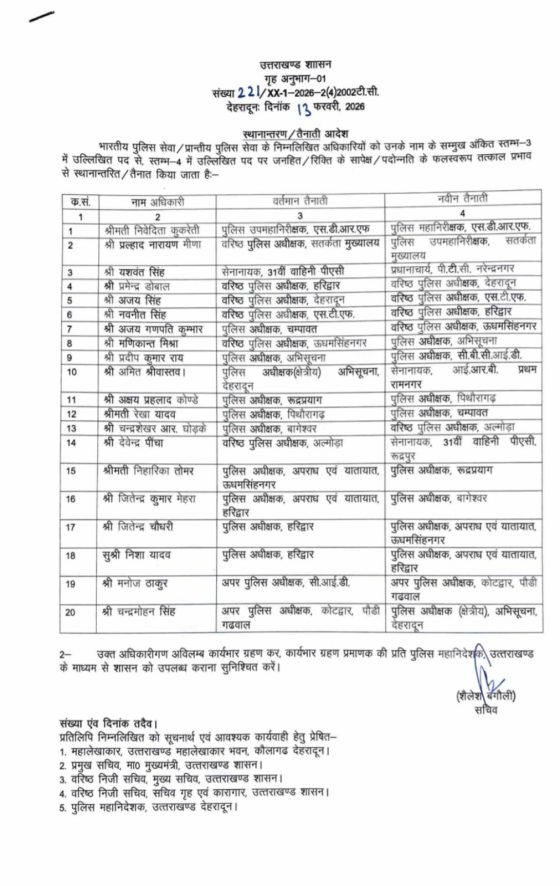DAINIK NATION BUREAU/NEW DELHI
Uttarakhand Chief Minister Pushkar Singh Dhami presented a detailed account of Uttarakhand’s landmark implementation of the Uniform Civil Code (UCC) during the Chief Ministers’ Council meeting chaired by Prime Minister Narendra Modi in New Delhi. Highlighting the robust digital infrastructure and public participation behind the UCC rollout, CM Dhami stated that Uttarakhand has become the first state in India to practically implement Article 44 of the Constitution.
The CM informed the gathering that a user-friendly system has been developed to facilitate UCC implementation, including a dedicated portal, mobile application, and integration with over 14,000 Common Service Centers (CSCs) at the village level. To handle public grievances and streamline application processing, auto-escalation and grievance redressal mechanisms have been established. In just four months, more than 1.5 lakh applications were received, covering nearly 98% of villages in the state—a sign of overwhelming public support.
CM Dhami expressed gratitude to Prime Minister Modi and Union Home Minister Amit Shah for their guidance. He recalled the promise made during the 2022 Assembly elections to implement UCC and how the work began immediately after the electoral mandate. A committee chaired by Justice Ranjana Desai was formed on 27 May 2022, which collected over 2.32 lakh suggestions from public consultations across all 13 districts.
The Uttarakhand Assembly passed the UCC Bill on 7 February 2024, and following Presidential assent on 11 March 2024, the law was officially implemented on 27 January 2025.
The Chief Minister clarified that the UCC is not anti-religion but is aimed at removing legal discrimination based on caste, religion, or gender. It bans practices like halala, iddat, polygamy, triple talaq, and child marriage, ensuring equal rights for women. Scheduled Tribes under Article 342 remain exempt to preserve their traditions.
Under the UCC, daughters across all communities now enjoy equal inheritance rights. There is no discrimination between children born from natural relationships, ART, or live-in relationships. Parents are also granted rights in their children’s property.
Registration of live-in relationships is now mandatory for safety and legal clarity, with confidentiality measures in place. A unified legal process for marriage, divorce, and inheritance has been instituted under a clear rule-based framework.
 Dainik Nation News Portal
Dainik Nation News Portal

